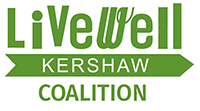Uncategorized
Trustees to get LWK ‘emergency’ bus route update
Representatives from the LiveWell Kershaw Coalition will make a presentation to the Kershaw County Board of School Trustees during its meeting today about a CARES Act-funded emergency bus route in…
Read MoreFebruary 2020 – Minutes
February 2020 – Minutes
Read MoreJune 2020 – Slides
June 2020 – Slides
Read MoreJune 2020 – Minutes
June 2020 – Minutes
Read MoreJuly 2020 – Slides
July 2020 – Slides
Read MoreJuly 2020 – Minutes
July 2020 – Minutes
Read MoreAugust 2020 – Slides
August 2020 – Slides
Read MoreAugust 2020 – Minutes
August 2020 – Minutes
Read MoreSeptember 2020 – Slides
September 2020 – Slides
Read MoreSeptember 2020 – Minutes
September 2020 Minutes
Read More